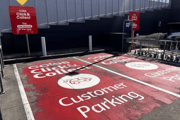Discover hidden wealth: How Aussies can reclaim billions in unclaimed money and superannuation
- Replies 2
Australia is a land of opportunity, and sometimes, that opportunity comes in the form of forgotten or unclaimed money.
It's a little-known fact that there are billions of dollars just waiting to be claimed by their rightful owners.
But how does this happen, and more importantly, how can you find out if some of this money belongs to you?
The Australian Securities and Investments Commission (ASIC) is currently safeguarding approximately $2.3 billion in lost money from bank accounts, share investments, and life insurance policies.
According to a spokesperson, ‘The amounts vary in size from a few dollars to over a million dollars.’
The Australian Taxation Office (ATO) has an even larger sum on its books, with $17.8 billion in lost superannuation spread across more than 7.1 million accounts, based on its data from June 30, 2024.
This staggering figure includes funds transferred to the ATO as well as inactive accounts that super funds have been unable to connect with their owners.

Young Australians, particularly those aged 18-24, are missing out on $241 million in unclaimed Medicare benefits. This is often due to incorrect or outdated banking details.
Additionally, state and territory bodies hold an unknown amount of unclaimed money, which could be from a variety of sources including deceased estates, dividends, and trust funds.
These amounts could belong to anyone—potentially even you.
Money typically becomes unclaimed due to inactivity or outdated contact details.
For instance, an individual might relocate and fail to update their contact information with a business or overlook a bank or investment account.
Additionally, funds can remain unclaimed if not identified after a person's death.
Since December 31, 2015, unclaimed money can be sent to ASIC after seven years of inactivity, compared to the previous requirement of three years.
Similarly, superannuation can be considered ‘lost’ if (1) you are unreachable by your fund (e.g., you moved and didn’t update your details) and there has been no contribution or rollover for 12 months, or (2) your super account is inactive, with no contributions or rollovers in five years.
Lost super can be retained by super funds or transferred to the Australian Taxation Office (ATO), where it is kept in a government-administered holding account.
For unpaid Medicare claims, funds may be held if banking details are not provided or are incorrect.
ASIC's Moneysmart unclaimed money tool is a great place to start if you want to discover if you have unclaimed money from bank accounts, shares, or life insurance.
‘If someone finds they have unclaimed money using ASIC's Moneysmart online search, they will need to contact the relevant bank or institution where the money is held if the money is listed as “banking” or “life insurance” and make a claim enquiry,’ an ASIC spokesperson explained.
‘They will carefully assess a claim and notify ASIC to release funds if approved.’
For lost super, the ATO's online service portal through myGov is your go-to resource. Once logged in:
To check for unpaid Medicare benefits, log into Medicare's service via myGov, update your banking details, and any owed benefits should be paid within three days.
Here's how to update your details:
1. Log into your Medicare account.
2. Select ‘My details’ from the menu, then choose ‘View and edit my details’.
3. Find the bank details section and select ‘edit’.
4. After updating your details, select ‘Save bank details’.
Don't forget to check with your state or territory's relevant body for any additional unclaimed money that might be waiting for you.
The best way to prevent your money from becoming unclaimed is to keep your accounts active with occasional transactions, even once every few years.
The amount is irrelevant—even a five-cent transfer or deposit will prevent your account from being sent to ASIC.
It's also crucial to ensure your details are current with financial institutions and government agencies that may handle your money.
‘The most important thing to do is make sure you keep your contact details, including postal address, phone, and email, up to date,’ ASIC’s spokesperson advised.
‘If you move house or change any other contact details, make sure you tell your bank or other organisations you do business with as soon as possible.’
 Now, dear members of the Seniors Discount Club, it's your turn to weigh in. Have you ever discovered unclaimed money in your name? Do you have any tips for keeping track of your financial assets? Share your stories and advice in the comments below, and let's help each other stay on top of our finances.
Now, dear members of the Seniors Discount Club, it's your turn to weigh in. Have you ever discovered unclaimed money in your name? Do you have any tips for keeping track of your financial assets? Share your stories and advice in the comments below, and let's help each other stay on top of our finances.
It's a little-known fact that there are billions of dollars just waiting to be claimed by their rightful owners.
But how does this happen, and more importantly, how can you find out if some of this money belongs to you?
The Australian Securities and Investments Commission (ASIC) is currently safeguarding approximately $2.3 billion in lost money from bank accounts, share investments, and life insurance policies.
According to a spokesperson, ‘The amounts vary in size from a few dollars to over a million dollars.’
The Australian Taxation Office (ATO) has an even larger sum on its books, with $17.8 billion in lost superannuation spread across more than 7.1 million accounts, based on its data from June 30, 2024.
This staggering figure includes funds transferred to the ATO as well as inactive accounts that super funds have been unable to connect with their owners.

Australians have billions in unclaimed funds from inactive bank accounts, shares, life insurance policies, and superannuation. Credit: Shutterstock
Young Australians, particularly those aged 18-24, are missing out on $241 million in unclaimed Medicare benefits. This is often due to incorrect or outdated banking details.
Additionally, state and territory bodies hold an unknown amount of unclaimed money, which could be from a variety of sources including deceased estates, dividends, and trust funds.
These amounts could belong to anyone—potentially even you.
Money typically becomes unclaimed due to inactivity or outdated contact details.
For instance, an individual might relocate and fail to update their contact information with a business or overlook a bank or investment account.
Additionally, funds can remain unclaimed if not identified after a person's death.
Since December 31, 2015, unclaimed money can be sent to ASIC after seven years of inactivity, compared to the previous requirement of three years.
Similarly, superannuation can be considered ‘lost’ if (1) you are unreachable by your fund (e.g., you moved and didn’t update your details) and there has been no contribution or rollover for 12 months, or (2) your super account is inactive, with no contributions or rollovers in five years.
Lost super can be retained by super funds or transferred to the Australian Taxation Office (ATO), where it is kept in a government-administered holding account.
For unpaid Medicare claims, funds may be held if banking details are not provided or are incorrect.
ASIC's Moneysmart unclaimed money tool is a great place to start if you want to discover if you have unclaimed money from bank accounts, shares, or life insurance.
‘If someone finds they have unclaimed money using ASIC's Moneysmart online search, they will need to contact the relevant bank or institution where the money is held if the money is listed as “banking” or “life insurance” and make a claim enquiry,’ an ASIC spokesperson explained.
‘They will carefully assess a claim and notify ASIC to release funds if approved.’
For lost super, the ATO's online service portal through myGov is your go-to resource. Once logged in:
- Go to the ‘super’ menu and select ‘fund details’ to see if you have any forgotten accounts or super held by the ATO.
- To transfer unclaimed or forgotten super, choose ‘manage’ and then ‘transfer super’. Follow the prompts to transfer the super to another eligible account.
- If you are over 65 or if the amount is less than $200, you can select ‘Withdraw ATO-held super’ to have the money paid directly to you.
To check for unpaid Medicare benefits, log into Medicare's service via myGov, update your banking details, and any owed benefits should be paid within three days.
Here's how to update your details:
1. Log into your Medicare account.
2. Select ‘My details’ from the menu, then choose ‘View and edit my details’.
3. Find the bank details section and select ‘edit’.
4. After updating your details, select ‘Save bank details’.
Don't forget to check with your state or territory's relevant body for any additional unclaimed money that might be waiting for you.
- ACT—Public Trustee and Guardian
- NSW—Revenue NSW
- NT—Department of Treasury and Finance
- QLD—Queensland Public Trustee
- SA—Department of Treasury and Finance
- TAS—Department of Treasury and Finance
- VIC—State Revenue Office
- WA—Department of Treasury
The best way to prevent your money from becoming unclaimed is to keep your accounts active with occasional transactions, even once every few years.
The amount is irrelevant—even a five-cent transfer or deposit will prevent your account from being sent to ASIC.
It's also crucial to ensure your details are current with financial institutions and government agencies that may handle your money.
‘The most important thing to do is make sure you keep your contact details, including postal address, phone, and email, up to date,’ ASIC’s spokesperson advised.
‘If you move house or change any other contact details, make sure you tell your bank or other organisations you do business with as soon as possible.’
Key Takeaways
- Australians have billions of dollars in lost and unclaimed money, including from inactive bank accounts, shares, life insurance policies, and superannuation.
- ASIC handles approximately $2.3 billion in lost money, and the ATO has $17.8 billion in lost superannuation, with young people most commonly missing out on unclaimed Medicare benefits.
- Individuals can check for unclaimed money and lost super via ASIC's Moneysmart tool and the ATO's online service portal through myGov, respectively.
- To prevent funds from becoming unclaimed, Australians should ensure they make occasional transactions in their accounts and keep their contact details up to date with all financial institutions and government bodies.







